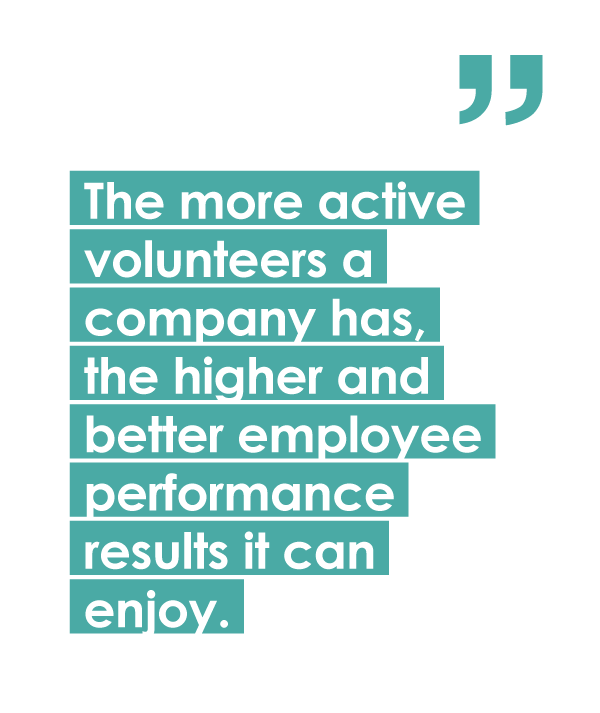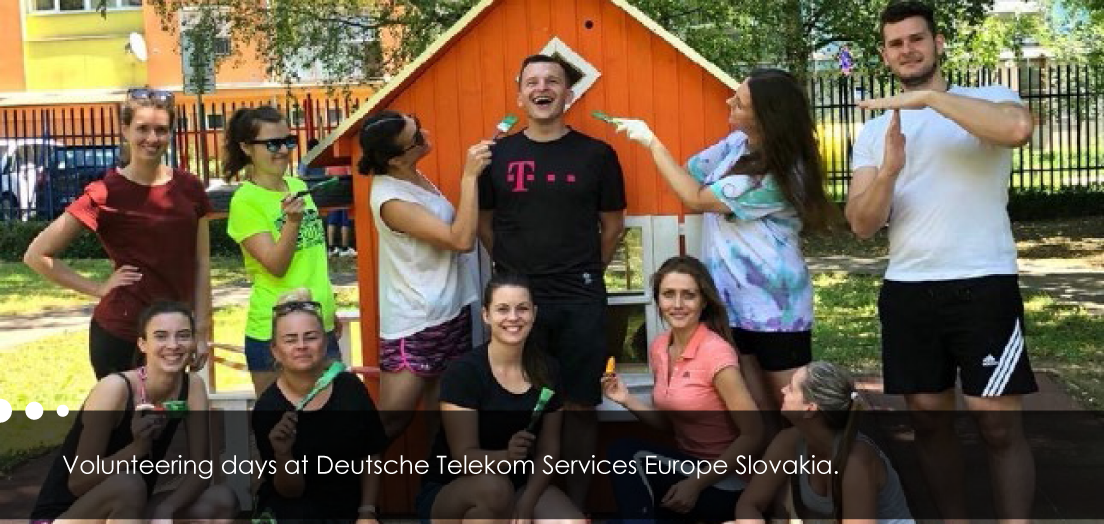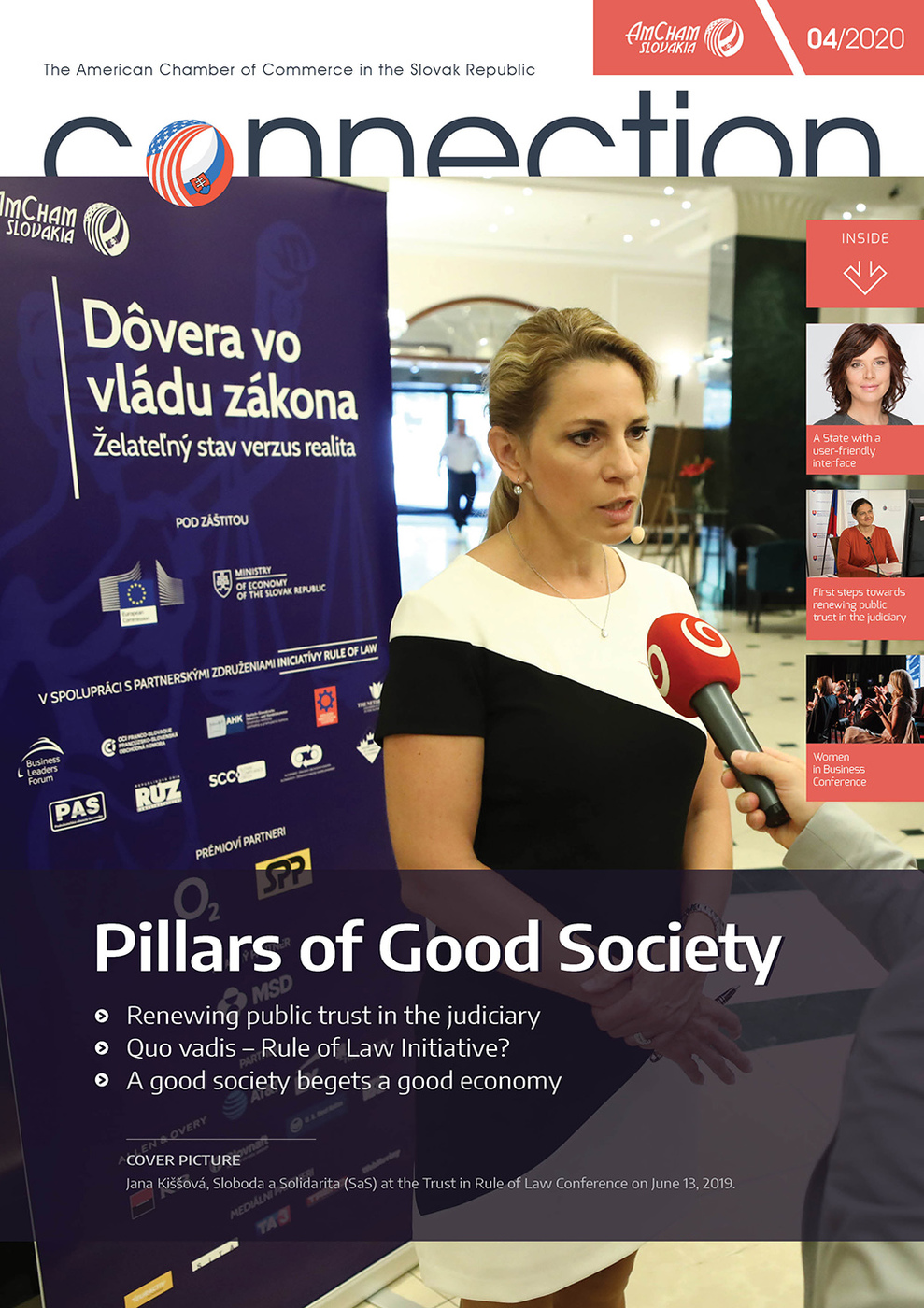Nowadays, the young generation looks for more than just pay raise and benefits at work. They want to feel satisfied, have a good work environment and most importantly contribute to a company that has a positive impact on society. However, Shared Services Centers (SSCs) are a bit specific, they offer services to internal clients within a larger corporation or a group of many businesses under a mother organization. Without the need and pressure to offer sustainable products or a service to an external client, corporations used to push back Corporate Social Responsibility (CSR) activities, but this has been changing for quite some time now. Strong entrepreneurs understood that having social responsibility incorporated throughout the whole value chain can bring positive impact on employees, company and society.
The SSCs boom in Slovakia started back in 2000s. Foreign companies realized that Slovakia has economic and political stability, strategic location, and most importantly a well-qualified and accessible pool of labor force. Since then, more than 60 profitable companies came to Slovakia, employing over 30 000 people1. In order to deal with growing competition and the need to continue to offer high service quality, SSCs need to keep up with the job market as well. To be an attractive employer for today’s young labor, a company needs to have a strong CSR portfolio not only internally, but mainly externally. These two aspects – business strategy with CSR – are a perfect ground to offer competitive services with quality, safety and reliability.

Volunteering increases employee engagement
An important part of SSCs’ social responsibility strategy is corporate volunteering. If volunteering is successfully implemented, it is a triple win-win situation for employees, an organization and the society. According to a research article done by frontiers for Psychology, “corporate volunteering correlates with numerous positive psychological outcomes at both employee and organization level.”2 This symbiosis can only be achieved by incorporating employees’ interests and abilities in corporate volunteering and employers’ development and implementation of volunteering activities into business strategy. Though, it is important to mention that companies thrive for more than just talented employees, they are also seeking people who are psychologically connected and committed to work with high achieving standarts. If these are met, then the company has a work force that fulfills their personal need of meaning and a business that has high job performers and some external marketing on top of that.
The more active volunteers a company has, the higher and better employee performance results it can enjoy. This creates a higher sense of belonging and makes an employee stay with the same employer for a longer time3. They simply feel like they are part of something larger and seeing the footprint of their company outside of their work is what makes them proud and loyal.
SSCs prove higher job satisfaction with a strong volunteering strategy
An annual employee survey done by Deutsche Telekom Services Europe Slovakia, an internal service provider of Deutsche Telekom AG, proved the before mentioned findings by demonstrating that having a strong external CSR strategy increases employee engagement. In just a year, the overall satisfaction with an employer’s brand increased by 10 % in 2019, a significant shit compared to previous years. Job satisfaction and inclusion went up a year later and in 2020 showed approximately a 7 % increase. These results were also confirmed by a random survey by Human resources partners at the same SSC, who confirmed that applicants are asking or admiring social responsibility activities at nearly all job interviews and perceive corporate volunteering as a must. Job applicants look at social networks, websites and other platforms to see where the company is involved to get a better understanding of the employer’s CSR strategy. Of course, this step is done way before the applicants even send out their resumes. Therefore, companies really need to think out of the box and consider all aspects of their influence in the society and environment where they function.
The need to do good should be the top priority of SSCs and any other organization whose aim is to boost employee engagement, win over young generations on the job market, accelerate business and most importantly to help the society. We have entered a time where revenue, good salary and benefits are not enough and “doing good” for a greater meaning is the way to go. SSCs are quite different from other products and services entrepreneurs, but with the right business strategy and a correct dose of social responsibility we can all help the planet together in order to preserve it for future generations.
- SARIO, (2018). Shared Service & Business Process Outsourcing Centers in SLOVAKIA
- Frontiers in Psychology, (2018). Corporate Volunteering: Relationship to Job Resources and Work Engagement https://www.frontiersin.org/articles/10.3389/fpsyg.2018.01884/full
- Rodell, J. B., Breitsohl, H., Schroder, M., and Keating, D. J. (2016). Employee volunteering: a review and framework for future research.

Daniela Kiffuszová, Communication specialist, Deutsche Telekom Services Europe Slovakia



Follow us